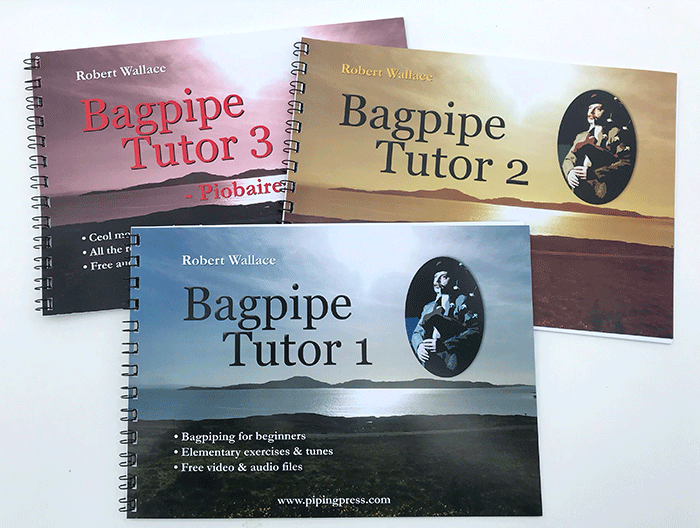
The subjects of teaching and adjudication are never far from the surface in the piping and pipe band world. Both can attract widely differing views and can be contentious.
There is no doubt that much has changed over the years in methods of teaching piping and drumming. What has certainly not changed is the need to learn properly the basic rudiments, embellishments and musical theory relevant to both musical disciplines.

By Alistair Aitken OBE
An article entitled ‘How to Achieve Success in Teaching Drumming’ written by the legendary Drum Major Jimmy Catherwood around 70 years ago confirms this. The basic principles it contains are still very much relevant today and in many ways could be applied to teaching piping.
It was the book’s opening statement, ‘a good drummer does not necessarily make a good teacher’ which led me to attempting this more detailed analysis of the skill requirements of teachers and adjudicators.
The teaching of piping and pipe band drumming has increased significantly in Scotland over the past two decades whether in schools, groups of schools, community pipe bands or in home settings.
It is probably also fair to say that teaching is less likely to be the subject of criticism in comparison to adjudication but nevertheless, in many situations, teachers or tutors will be subject to some degree of assessment depending on the success of their learners in solos or band competition or in PDQB/SQA examinations.
Good pipers and drummers are expert as performers, but does it follow that that makes them good teachers or adjudicators?
This is not necessarily the case as in many ways these require different skills to those of the expert player. It is probably also fair to say that those who do have suitable teaching skills: knowledge, patience, organisation, planning, communication, may vary in their ability to teach solo or groups of players.
Some may be more suited to teaching basic learners; some in developing learners who already have a good grounding, and some may be more adept at improving the combined effect of the players in a pipe band.
Similar arguments can be applied to pipe band adjudicators regarding their ability to judge their primary disciplines of piping or drumming, or to judge a band as a musical ensemble.
‘Good pipers or drummers do not necessarily make good adjudicators.’ That statement might be contested by some, but in reality the transition from player to adjudicator is a much more complicated process than most people are prepared to admit.
Judging happens in all walks of life and more than often it attracts intense scrutiny and some form of criticism. Probably one of the best examples is football, where the referees are regularly subject to criticism by spectators.
How often do we also hear and see experts on TV criticising politicians and telling them how to run the country? Could these people really do any better? The piping and pipe band world is no different.
‘It is human nature for some to consider themselves as knowledgeable and proficient as the official adjudicators…..
So what are the differences between playing and judging? Players do not need to listen to and make detailed, analytical assessments of significant numbers of performances consistently for lengthy periods of time.
They do not have to do so in all sorts of weather; they do not have to write constructive and legible comments about all pipe band performances; they do not have to place all the performances accurately in an order of merit.
It is common practice for players in bands and spectators to assess performances without considering all the important factors which the official adjudicators are expected to be taking into account.
It is human nature for some to consider themselves as knowledgeable and proficient as the official adjudicators; some think adjudication is only about limited parameters: mistakes, integration and tone rather than also about a wider technical and musical context.
Some do not listen to the performances fully or all of the performances in a competition; and some possibly base their assessments on a playing style they have been used to during their own playing experience. Adjudicators have to be able to rise above their own personal preferences.
Unfortunately social media has made the situation worse. It not unknown for people to join the debate having never even heard the performances.
- To be concluded. Read the original article by D/M Catherwood here.

Tutor Books 1-3 in Eng./ Ger.: 60 lessons
The best possible way to start a piping career. By ordering these three books the learner will have access to 60 lessons all accompanied with either audio or video back up as required. Got a problem just click on www.pipingpress.com and then click on the tutor images on the home page for guidance. Difficulty over!



















Accountability is an important factor; allow me to explain: In areas where there are a number of excellent players, bands, programs, events, etc., word gets around quickly as to who is considered competent and who is to avoid. Conversely, often in more “rural” area (from the standpoint of a paucity of players and bands), one can set up as an instructor, and even brag about their “accomplishments”, and beginners may be none the wiser…until they attend a good workshop or school and end up with a tremendous shock.
Years ago when I ran the P & D for the Ohio Scottish Arts School, we had a number of students show up who happened to be very good players. They were all from the same band and taught by the same fellow.
We, the teachers, myself, Ken Eller and Sandy Keith were all amazed at the playing ability of these students and the fellow that taught them. He wasn’t from Scotland nor had he won any solo prizes large or small, but he was turning out very good properly taught pipers. He was methodical. So I would have to say no that even a not so good player can do instruction very well.
As a retired schoolteacher – and piper – I’d make the following observation.
Everyone went to school and, consequently, feels entitled to have an opinion on education.
Everyone who ever played the pipes or drums, in similar vein, feels entitled to have an opinion on judging.
Je reste ma valise!!